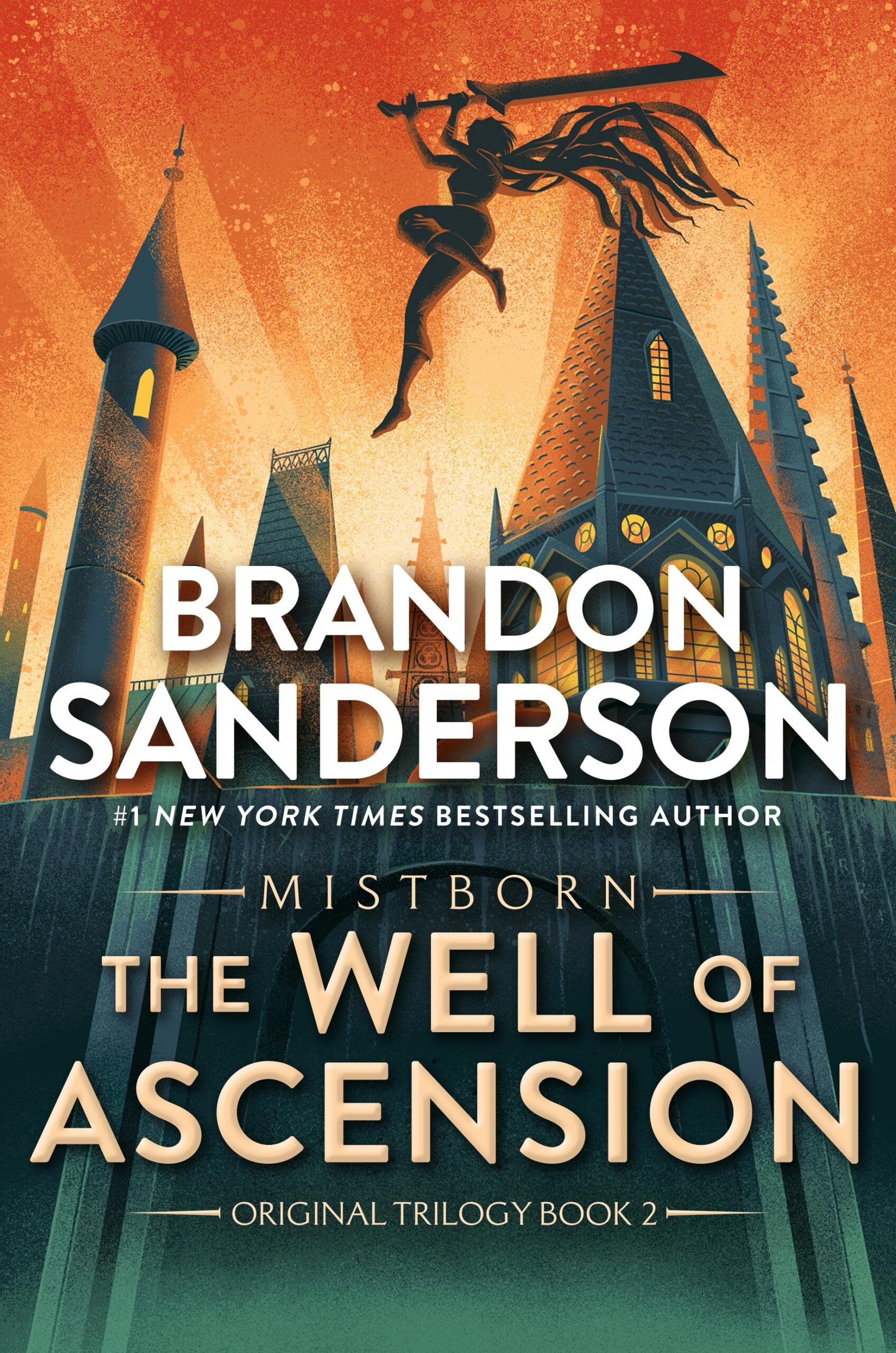
The Well of Ascension
11
by Sanderson, BrandonElend stands atop Luthadel’s city wall, observing a second invading army led by Lord Cett, who had previously sent assassins to kill him. The army camps near the Luth-Davn Canal, separate from Straff Venture’s forces. Elend, feeling the weight of impending siege, questions how they missed Cett’s approach, to which Clubs explains their scouts were distracted by Straff’s army. Vin, perched precariously on the wall’s edge, notes the tension between the two armies but doubts they will attack each other due to their balanced strength. Elend’s anxiety grows as he grapples with the inevitability of conflict.
The chapter highlights Elend’s sense of powerlessness as he confronts the reality of two formidable enemies. Unlike Vin and the others, who are accustomed to adversity, Elend struggles with the lack of control. He reflects on how Kelsier, the legendary leader, might have handled the situation. Vin’s keen Allomantic senses spot a fast-approaching rider from Cett’s camp, sparking curiosity. Elend, envious of her abilities, wishes for even a minor Allomantic power to contribute more effectively to their defense.
Vin identifies the rider as Breeze, a trusted ally, being pursued by archers. This revelation shocks Elend, raising questions about Breeze’s presence in Cett’s army and the danger he faces. Vin’s quick reaction underscores her role as the group’s protector, while Elend and Clubs follow her lead. The scene builds tension as the group prepares to intervene, highlighting the unpredictability of their situation and the loyalty among their ranks.
The chapter ends on a cliffhanger, emphasizing the precariousness of Luthadel’s defense. Elend’s internal struggle contrasts with Vin’s decisive actions, illustrating their complementary leadership styles. The arrival of Breeze introduces a new layer of intrigue, suggesting potential alliances or betrayals. The narrative captures the chaos of war and the resilience of the protagonists, setting the stage for further conflict and strategic maneuvering in the chapters to come.
FAQs
1. What are the two main threats facing Luthadel in this chapter, and how do they differ in their approach to the city?
Answer:
The two primary threats are the armies of Straff Venture and Lord Cett. Straff’s forces arrived first and have established a perimeter around Luthadel, while Cett’s army arrives later and camps near the Luth-Davn Canal. The key difference lies in their apparent intentions: Straff’s army appears more organized and prepared for a siege, while Cett’s forces seem opportunistic, possibly hoping to capture the city before Straff. The chapter notes that Straff likely knew about Cett’s approach, while Luthadel’s scouts were caught off guard, highlighting their differing levels of strategic awareness.2. How does Vin’s Allomantic ability provide a tactical advantage in this situation, and what does Elend’s reaction reveal about his character?
Answer:
Vin’s Tin-enhanced vision allows her to spot details like Cett’s banner and Breeze’s approach long before others can, giving Luthadel crucial early warnings. This contrasts sharply with Elend’s frustration at his lack of Allomantic powers, which reveals his feelings of inadequacy and powerlessness in the face of overwhelming threats. His internal monologue (“Why couldn’t I have ended up with one power?”) shows his struggle to adapt to leadership in a world where supernatural abilities provide significant advantages, contrasting with Vin’s natural competence in such situations.3. Analyze the significance of Breeze’s sudden appearance being chased by archers. What potential implications does this have for the political dynamics between the three factions?
Answer:
Breeze’s harried arrival suggests he may have been spying on or negotiating with Cett’s forces, and his pursuit indicates hostile relations between Cett’s faction and Kelsier’s former crew. This development could: 1) Reveal Cett’s aggressive stance toward Luthadel’s leadership, 2) Suggest potential divisions between the two invading armies that Luthadel might exploit, or 3) Indicate that Breeze was attempting subterfuge that failed. The chase scene heightens tension by showing that diplomatic solutions may be unlikely with Cett, while also demonstrating that the crew’s information network remains active despite the siege.4. How does Clubs’ military experience manifest in his analysis of the tactical situation, and what does his pessimistic outlook suggest about Luthadel’s chances?
Answer:
Clubs demonstrates veteran insight by immediately recognizing the armies’ relative strengths (“too evenly matched”), their likely intentions (“hoped he’d beat Venture to Luthadel”), and the reason Luthadel missed Cett’s approach (“scouts were focused on him [Straff]”). His consistent pessimism—dismissing Elend’s hopeful suggestions about mutual attacks or friendly intentions—reflects a realistic assessment of their dire situation. This professional despair underscores how outmatched Luthadel is militarily, forcing readers to consider whether unconventional solutions (like Allomancy or politics) will be their only hope against conventional military might.
Quotes
1. “‘Any chance they’re here to help us?’ Elend asked hopefully, looking toward Clubs, who stood beside him. Clubs just scowled. ‘They fly Cett’s banner. Remember him? Guy who sent eight Allomancer assassins to kill you two days back?’”
This exchange highlights Elend’s persistent optimism in the face of danger, contrasted with Clubs’ pragmatic realism. It sets the tone for the chapter’s tension as Luthadel faces threats from multiple armies.
2. “‘Straff is setting up a perimeter of soldiers, watching the enemy army,’ Vin said. ‘I doubt they’re friendly to each other.’”
This observation underscores the complex political dynamics at play, with three factions (Luthadel, Straff’s army, and Cett’s forces) in a precarious standoff. Vin’s tactical awareness shines through here.
3. “‘Kelsier would have found a way out of this,’ he thought.”
This internal monologue reveals Elend’s self-doubt and the weight of leadership he feels, constantly comparing himself to the legendary Kelsier. It’s a pivotal moment of character reflection.
4. “‘Elend, that’s Breeze!’ Vin said. ‘He’s being chased. Archers on horseback.’”
This sudden revelation introduces an unexpected twist and raises urgent questions about why a key ally is fleeing from Cett’s army. The action sequence that follows marks a turning point in the chapter.
